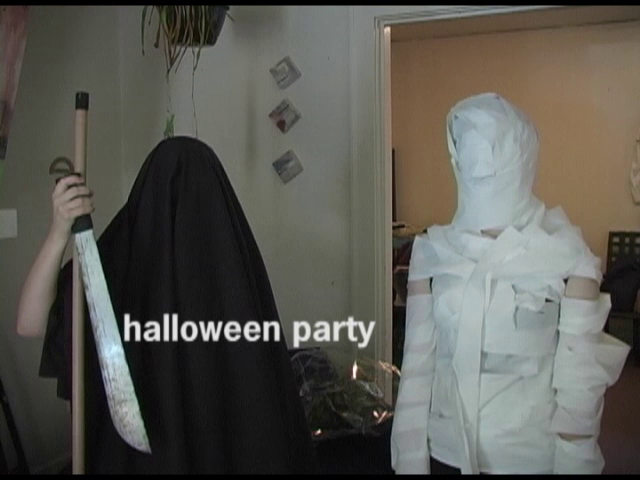“I would like to give you an Easy Riders, Raging Bulls story, something involving violence or drugs,” filmmaker Ben Siler says, referring to Peter Biskind’s infamous book about the wild times of 1970s Hollywood. “But that hasn’t really happened.” Without million dollar budgets and the attendant debauchery, Siler has been working steadily for the past decade on a series of experimental short films and music videos that have earned him a reputation among the Memphis film community as a unique talent.

Katherine Dohan in Ben Siler’s short film ‘Prom Queen’.
“I’ve really respected and been inspired by his work for a long time,” says Brett Hanover, a fellow Memphis filmmaker who assembled and released the best of Siler’s work on a new DVD. “He’s a really dedicated artist, but he’s been so focused on producing his films that they just haven’t been seen. Even when they did screen at film festivals, they were so odd that they kind of got lost in the shuffle. I think they’re much more along the lines of video art, but they’re getting seen by the film community, not by the arts community.”
Siler and Hanover both got their start as filmmakers at the Memphis Digital Co-Op, a film collective founded in 2001 by Morgan Jon Fox and Brandon Hutchinson. At a time when digital video promised to democratize the art of filmmaking, this group of video rebels taught each other to shoot, act, and edit and create new video languages. “The Media Co-Op was a big deal to me,” Siler says. “It was a place where I could show my work, and people responded to it.”
Hanover remembers the early days of the Co-Op as heady and wildly ambitious: “There was a lot of experimentation going on. People kind of found their niche and went into different directions.”

Siler often uses onscreen text to comment on his images.
But Siler, it seemed, was good at everything. He could write, act, shoot, and especially edit. One of his earliest works was “Prom Queen” starring Katherine Dohan, who would later go on to co-direct the award-winning What I Love About Concrete. “It’s one of my favorite Memphis films,” Hanover says. “It’s one of my favorite films, period. ‘Prom Queen’ is about adolescence, but it’s also [about] gender and sexuality and thinking about his own relationship to masculinity. He writes female characters really well. He puts himself in those characters, and draws from his own experience in a way that is very empathetic and thoughtful.”
Siler recalls that “Katherine Dohan was up for anything. I based a lot of that movie on my own history. I’m very proud that it ran on the Library Channel, and it made an impression on a bunch of people.”

Ben Siler in ‘New Moon In The Morning’.
As a performer, Siler is as fearless and deadpan as Buster Keaton. He begins “Latent” tied to a chair rehearsing a scene with actress Melissa Walker where she repeatedly slaps him in the face. “It’s intense,” says Hanover. “Just as a performer, he is incredible. It’s unbelievable how much he’s willing to make himself vulnerable.”
Siler says the deceptive simplicity of his films are the result of the biggest lesson he learned at the Co-Op. “Everyone is in the mindset of the Hollywood blockbuster, but we should be thinking of what we can do on the level where we’re at now and where we might always be.”

Katherine Dohan in ‘Prom Queen’
His music videos, four of which are collected on the DVD, are like editing master classes. For Snowglobe’s “Nothing I Can Do,” he stitches together scenes showing dozens of actors and non-actors doing ordinary things like pumping gas or drinking a beer, until the rush of images becomes overwhelming. “He’s playing with the medium of video, pushing the limits of what we can understand,” says Hanover. “He uses text and video to make us free-associate. It’s poetic. There’s a moment at the end of ‘Fantasy’ when Ben asks his partner, ‘Could you do something specific and small by which I’ll remember this moment for decades?’ She slowly twirls her hair, which may or may not be a response to the question. This is a central tension in Ben’s work — do we direct our lives or do we just assemble meaning from things that are specific and small?”
Siler says he is grateful that these films are getting a proper release.”There’s a lot of personal history in them. I’m happy for people to see the work,” he says. “It kind of shows that anybody can do it.”
Ben Siler: Collected Short Films (DVD) Available at Black Lodge Video or at BrettHanover.com/ben




